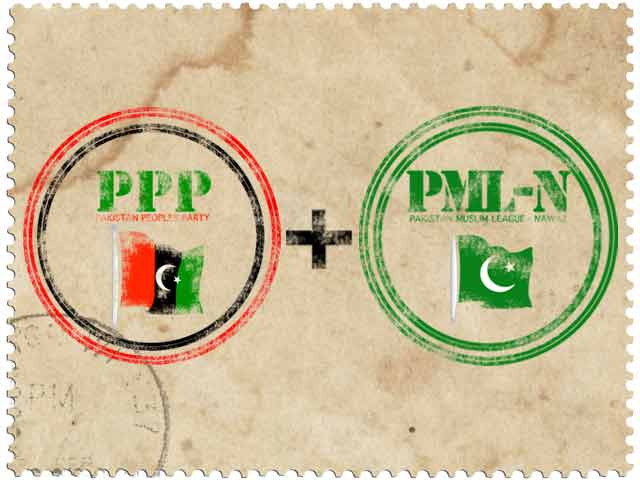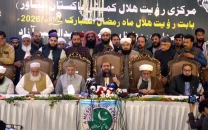Installing caretaker set-up: Political parties to get locked in hard bargain
PPP and PML-N need to perform a balancing act in negotiations.

Installing caretaker set-up: Political parties to get locked in hard bargain
Although the Pakistan People’s Party (PPP) and Pakistan Muslim League-Nawaz are major stakeholders at the centre, other political parties will be acquiring the lead role in provinces when the process to choose caretaker leaders starts later this month.
Leaders are planning to open formal negotiations aimed at selecting members of the interim governments both at the federal and the provincial level to administer the approaching polls.
The 20th Amendment passed by the parliament earlier this year enjoins dialogue between leaders in the national and provincial assemblies to select office-bearers for the interim set-up.
The prime minister is the leader of the house in the National Assembly, while chief ministers have this role in provinces.
At the centre, the PPP and the PML-N would assume the lead role with consultation between Prime Minister Raja Pervaiz Ashraf and Leader of the Opposition in the National Assembly Chaudhry Nisar Ali Khan.
Battlefield reversal
In Punjab, the battle of nerves persists between these two parties but their roles are switched: the PML-N is the government and the PPP stands as the opposition. Punjab Chief Minister Shahbaz Sharif and Opposition Leader Raja Riaz would be competing to choose provincial-level caretakers for the elections.
The curious situation wherein the same parties have varying roles in both the government and the opposition offers opportunities and challenges at the same time, said PML-N leader Engineer Khurram Dastgir Khan.
“It means that the interests of various political groups in the entire spectrum are dependent on each other. That is why the failure is not a desirable option for everyone,” added Dastgir.
The same thing was expressed by a blunter Riaz: “If they (PML-N) create a problem for us in Islamabad (centre), we will not spare them in Lahore (Punjab).”
Provincial combatants
In Sindh the PPP and its ally Muttahida Qaumi Movement (MQM) are in the government. The Pakistan Muslim League-Functional (PML-F) of Pir Pagara will assume the role of opposition.
In Khyber Pakhtunkhwa, the negotiations would be between the Awami National Party (ANP) and the Jamiat Ulema-e-Islam (JUI) of Maulana Fazlur Rehman which is the major opposition.
The situation in Balochistan is the most interesting: all but one member of the provincial assembly is in the government. Sardar Yar Muhammad Khan Rind, a dissident of Pakistan Muslim League-Q, is the only opposition lawmaker whose membership has been recently restored after some years of suspension. It is said he would join PML-N to become the one-man opposition in the province.
Published in The Express Tribune, August 24th, 2012.



















COMMENTS
Comments are moderated and generally will be posted if they are on-topic and not abusive.
For more information, please see our Comments FAQ